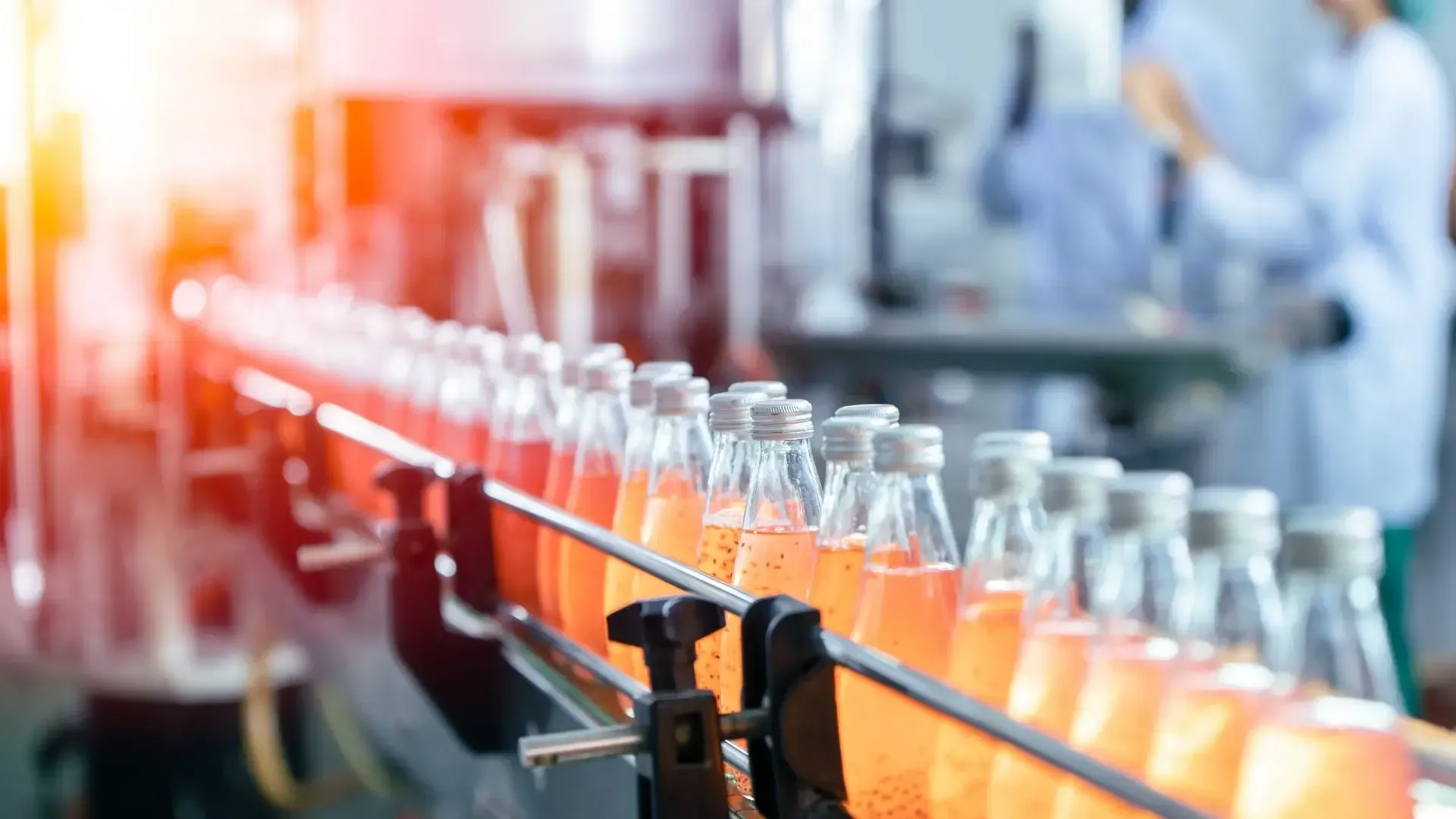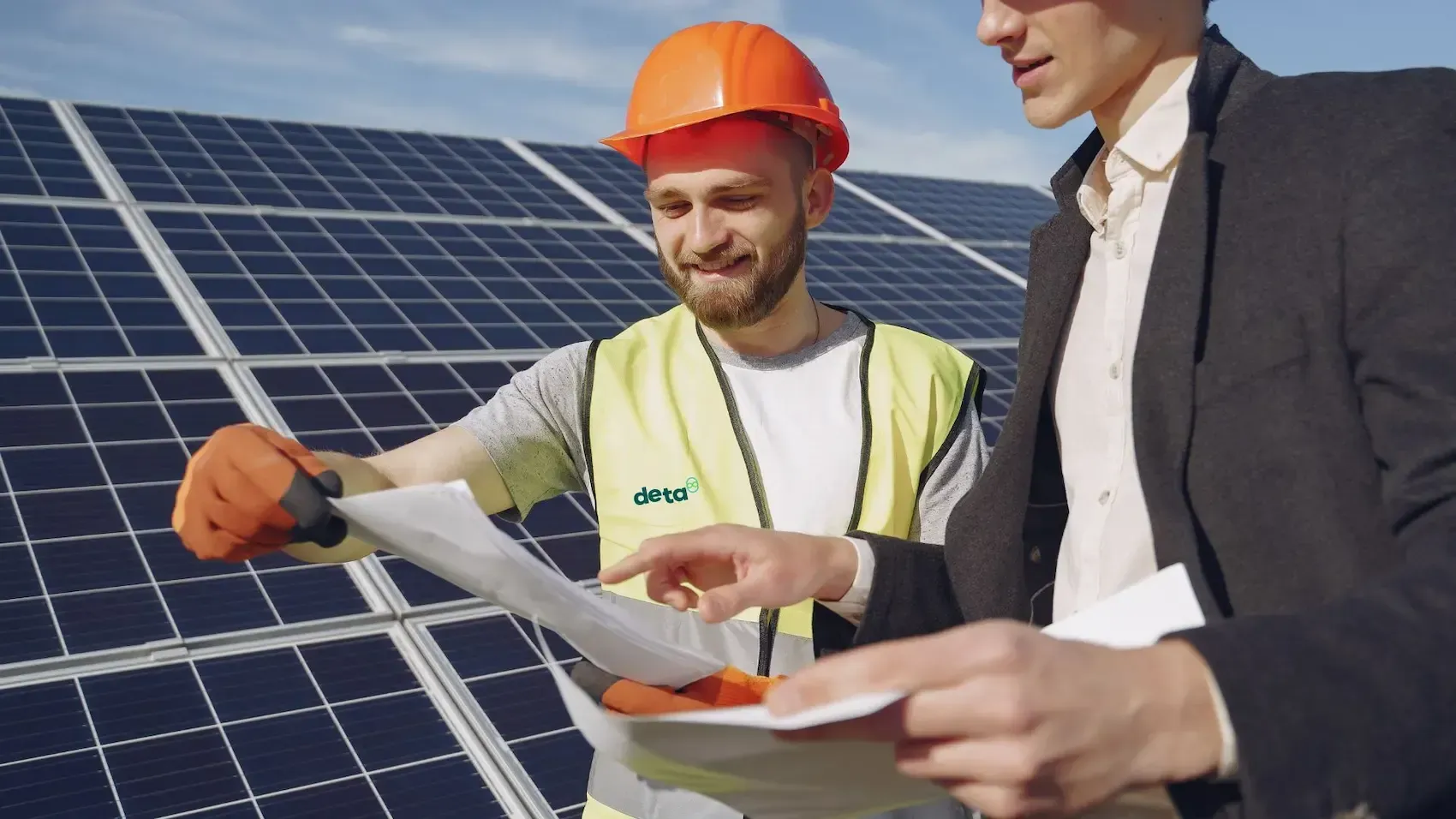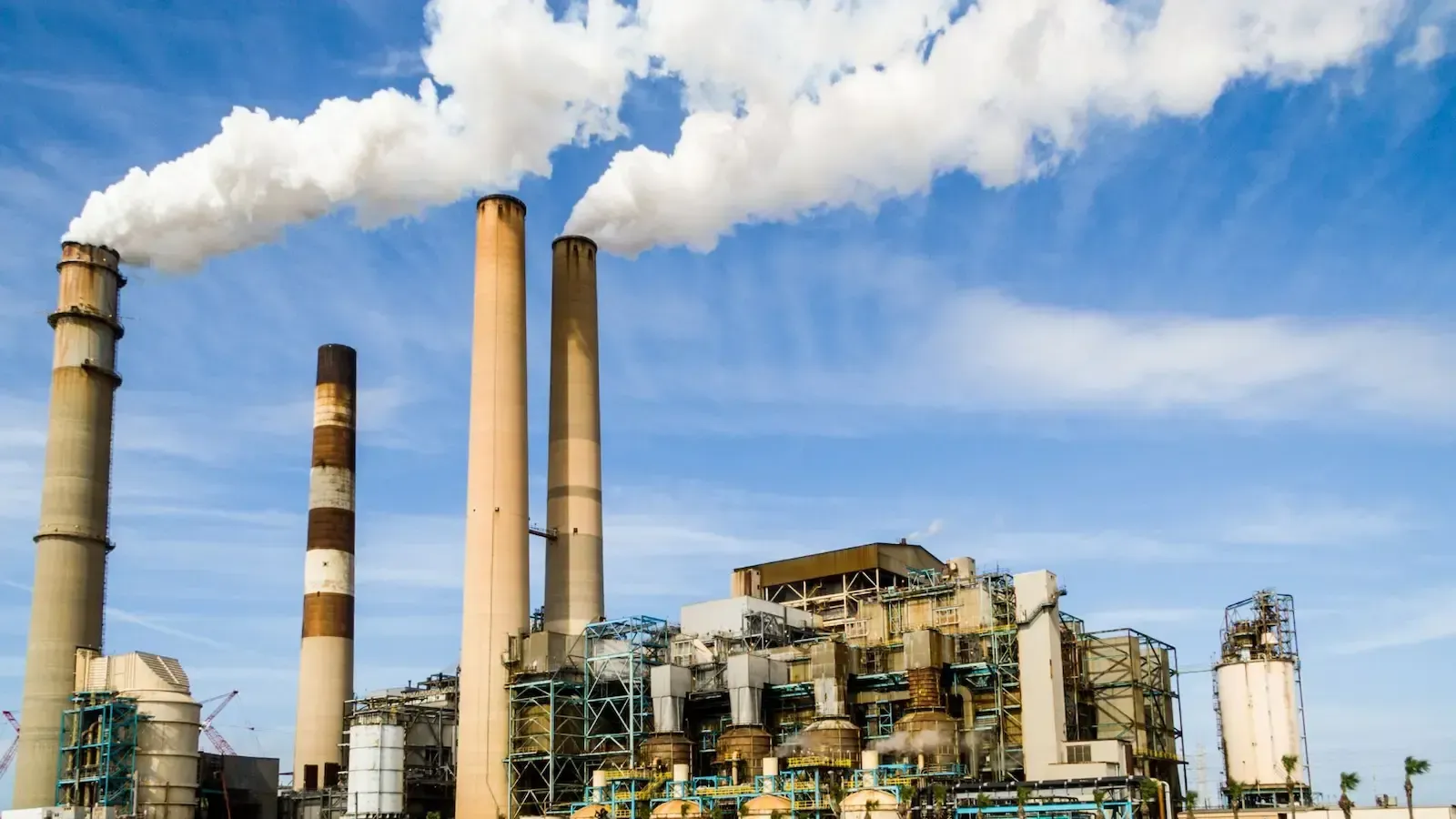Sustainability Intern at DETA
Netherlands intern at DETA - the New Zealand experience
My name is Jaro van Hulst and I am a 21 year old environmental science student from the HAS Green Academy in the Netherlands. For the last 5 months I have been living in New Zealand on a work experience placement at DETA in the Christchurch Office. The first contact between DETA and myself was an online interview, the DETA people were very welcoming and interested in me as a person. During the interview I found out what my project was going to be – I was going to work on a whitepaper about energy in New Zealand, a country I knew nothing about. Without fully understanding what I signed up for, I decided to take the opportunity and made my way down to New Zealand.
When I arrived, straight away I was welcomed by everyone and felt it was going to be a great opportunity. This was because of two main reasons; my coworkers and the project itself. I felt like people in New Zealand (especially at DETA) were extremely nice and friendly. So many times I would see New Zealanders having little chats with complete strangers. I was flabbergasted the first couple of times I saw this or that it happened to me, in my opinion this is such a nice way of living! At DETA, the company hierarchy is very flat and there is no overriding feeling of levels. I quickly found that my opinion on things was listened to and valued just as much as full time DETA employees. The company organised social events that I went along to and I was welcomed by everyone. The other reason I really liked my internship at DETA was because of my assignment.
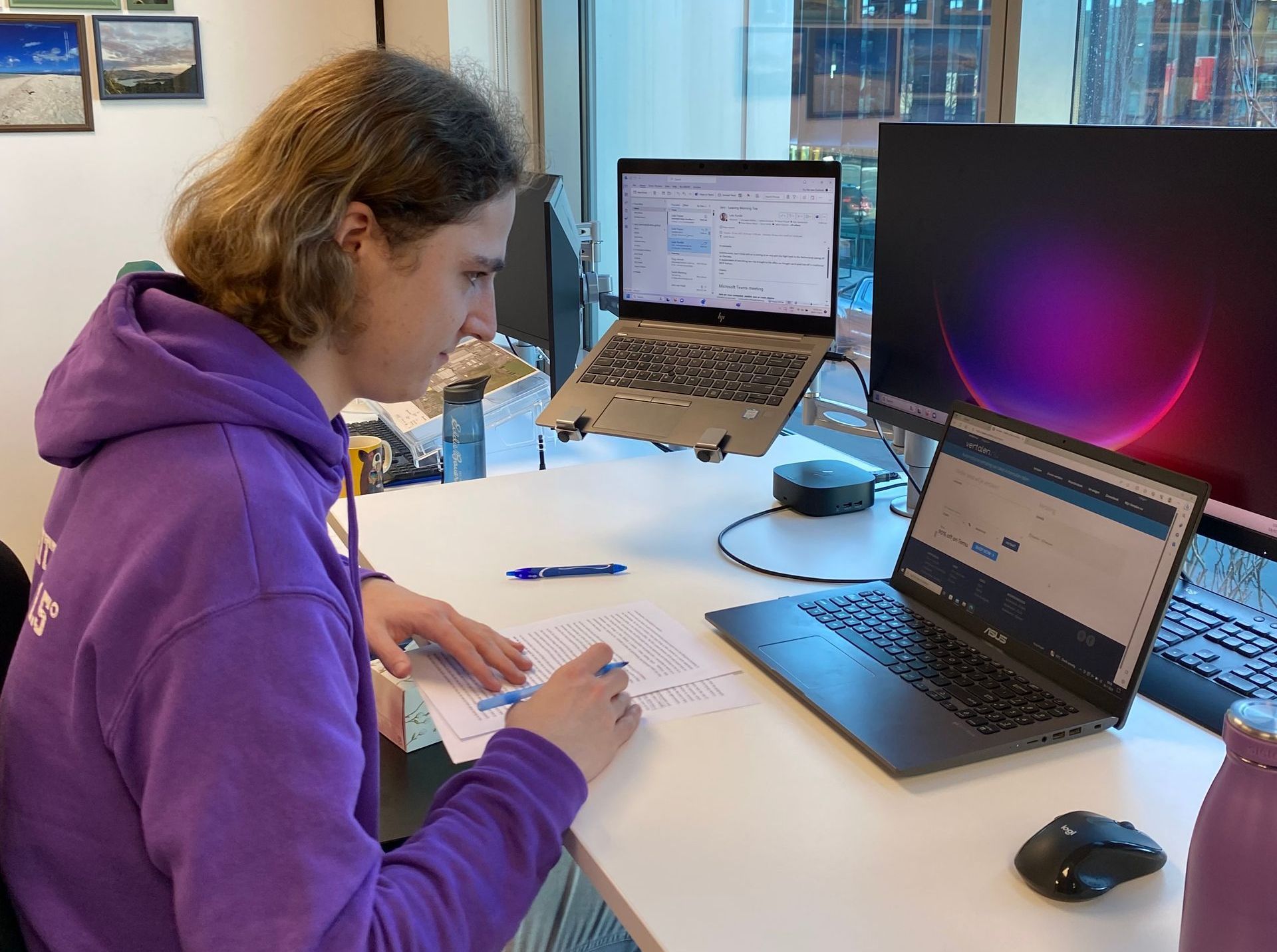
What does the process heat fuel future look like for the North Island?
My main task was to research and write a whitepaper on how to decarbonise the non-renewable process heat fuel per region in the North Island. The research looked at the next 10 years and what the options of process heat fuel for the future might look like in a decade. In the beginning some of the challenges were having to find the data and taking the time to get my head around the energy market in NZ. It was mind blowing for me that people still use coal because back home it is very normal to use gas. Over the 5 months the whitepaper slowly came together and this would not have been possible without the help of so many people from DETA; thank you guys!
I am very interested in energy transition and what the future of this will be for our society, so I feel like this project was made for me!
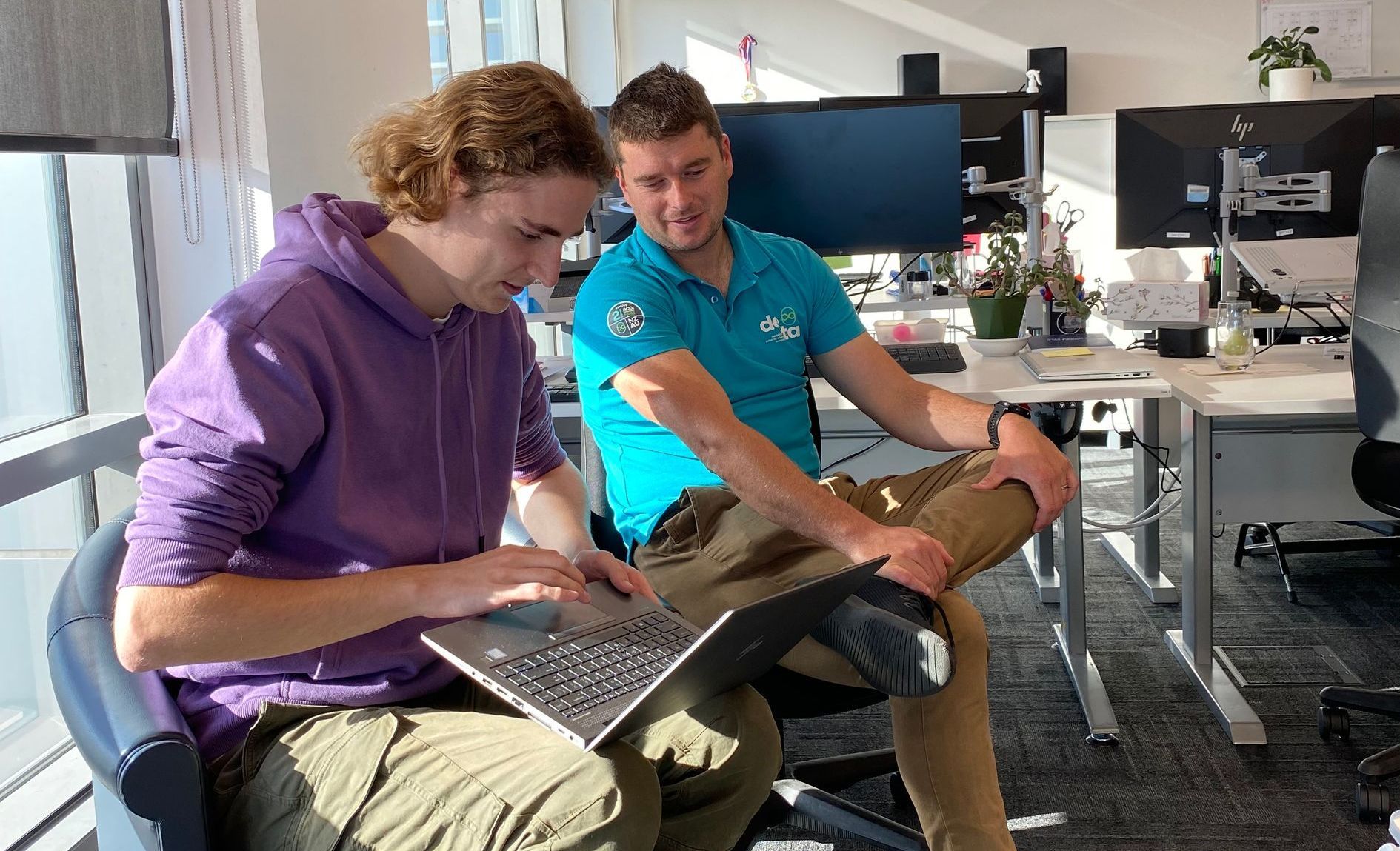

I learned that the energy transition in New Zealand is quite a different challenge than back home in the Netherlands. In New Zealand more than 70% of the energy is already renewable, mainly because of hydroelectricity. This is not the case in the Netherlands. Before coming to New Zealand I believed that nuclear energy was one of the best options for decarbonisation. My time in New Zealand has shown me that while this may be the case for much of Europe, it is not necessarily the best option for all the world.

This is because something that was new for me was to think about having to live somewhere where there are natural disasters like earthquakes. I came to see that the geographic variables of a country are very important to consider when thinking about long term energy options. Another perspective of mine that was challenged during my time on this project was the use of biomass. In the Netherlands, a lot of biomass that is used is imported from other countries, which defeats the purpose. I was against this because it can be a carbon intensive practice to transport biomass. Biomass is a good solution to bridge the gap if it is sourced and used locally. My time in New Zealand has shown me that a biomass model could be part of an energy solution in the right scenario
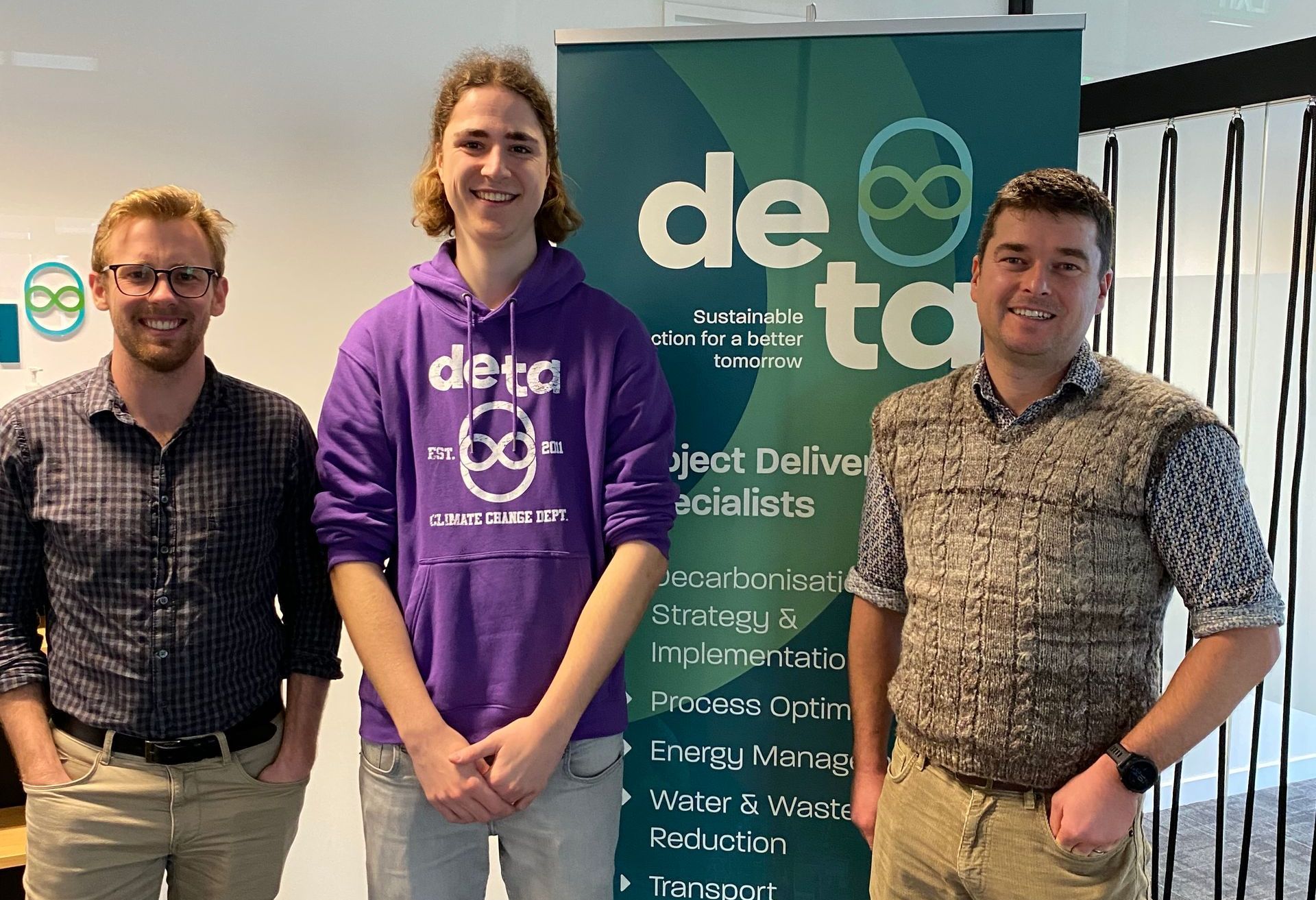
What I’ll take back home is a broader perspective on the various options and solutions available for decarbonisation services and energy transitions. This work experience placement has been truly enriching, and I have thoroughly enjoyed gaining insights into these critical areas.Working at DETA has been a great experience with working in a such a friendly team environment. DETA have a company mission to remove 2 million tons of CO2 emissions every year by 2030. Everyone in the company works together on this goal and in doing so it feels like one big family working together to achieve something positive for the planet. Thanks for everything DETA!
Author: Jaro van Hulst

